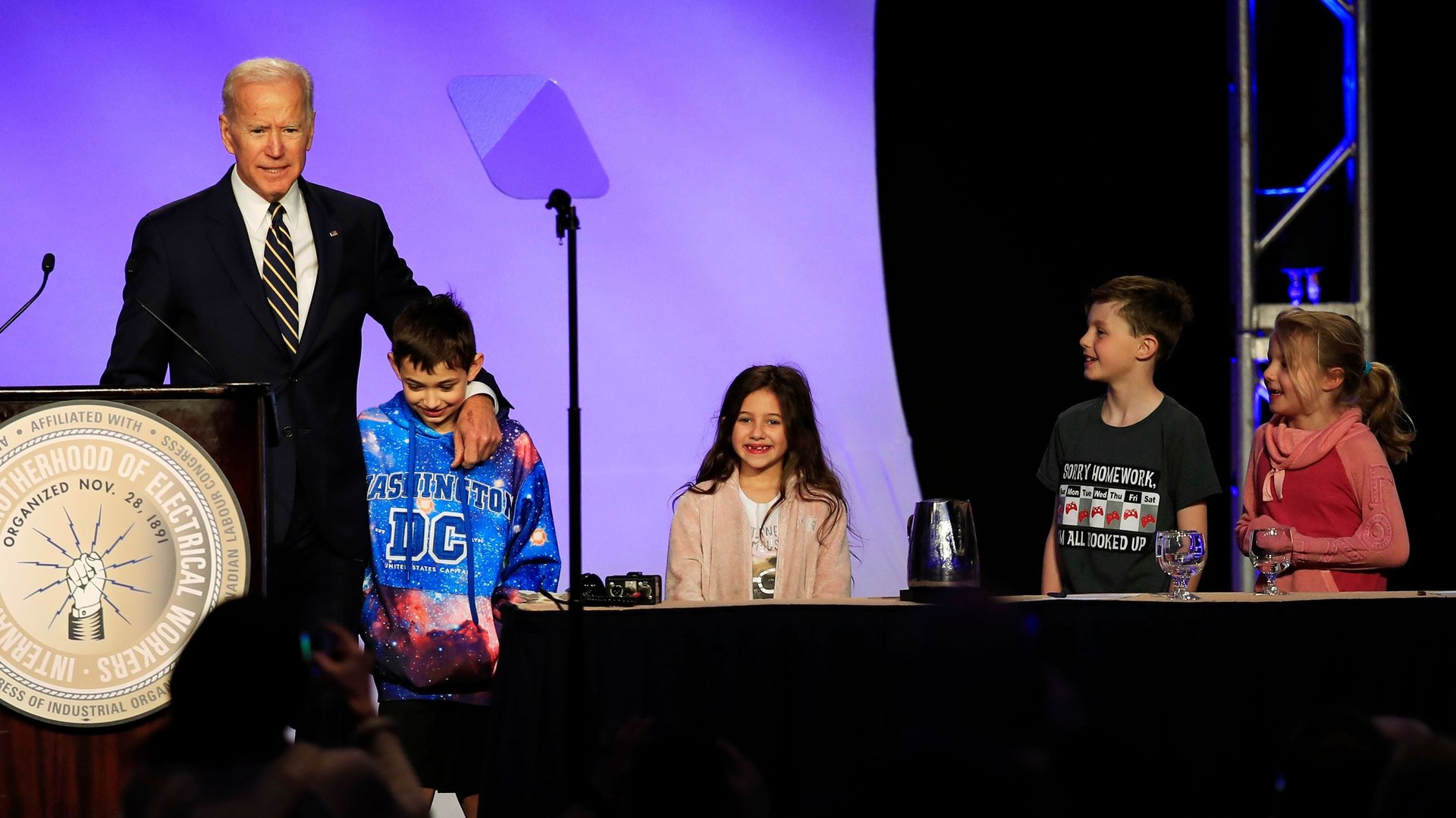Biden’s jokes about having permission to touch people show he doesn’t “get it”
Joe Biden likes to hug people, and some people like to be hugged. Some of them might even like being hugged by Joe Biden, strangers, colleagues, even superiors (this writer, for one, typically welcomes hugs).


Joe Biden likes to hug people, and some people like to be hugged. Some of them might even like being hugged by Joe Biden, strangers, colleagues, even superiors (this writer, for one, typically welcomes hugs).
Just as many people do not, and many finally feel safe and powerful enough to speak up when others, no matter how powerful, invade their personal space, no matter how subtly. The status quo is hard to change, and it is disappointing to see that someone like Biden, a man with a decades-long reputation in public life for being kind and decent, fails to take seriously the criticism that he has overstepped across personal boundaries.
“Social norms have begun to change, they have shifted, and the boundaries of protecting personal space have been reset—and I get it,” Biden said in a video non-apology he tweeted after four women came forward saying that the handsy ways of the former vice-president made them uncomfortable.
Evidently, though, Biden does not “get it,” and it took no longer than his first public event after his statement for that to be clear.
Today (April 5), Biden addressed the International Brotherhood of Electrical Workers meeting in Washington, DC, and though it appropriate to reference the criticisms by making light of them. Upon entering on stage, after hugging union president, Lonnie Stephenson, he joked, “I just want you to know I had permission to hug Lonnie,” prompting laughter amongst the mainly male audience. An audience with a significant female presence may have found the joke less hilarious.
It didn’t end there. After inviting a group of children to join him on stage, Biden shook all of their hands, and put his arm around one boy and said, “by the way, he gave me permission to touch him.”
It isn’t clear whether the child did, in fact, give Biden permission. In any case, Biden’s jokes show he essentially thinks the women’s accusations are trivial, and that he cannot tell the difference between welcomed expressions of physical warmth and paternalistic displays of unquestioned power.
His video illustrated the same attitude: Despite his composed, conciliatory tone, Biden didn’t apologize for his behavior, but rather justified it, suggesting that wanting him to restrain “gestures of encouragement” (which apparently would include rubbing noses with a near-stranger) amounts to urging him to be cold and disconnected.
Some commentators have agreed that those asking for more respect of personal boundaries are seeing the issue as too black and white. They warn of society becoming cold and devoid of humanity, of children raised without affection.
They misunderstand the issue entirely. No one is discussing cuddling your kids, or hugging your loved ones (if they like that). This is about the workplace (for Biden, it’s the political stage).
Being handsy is often associated to being a sign of warmth, and it can be. It is also associated with power and privilege—at the very least, enough power and privilege to feel comfortable getting into someone else’s personal space: That is what these women found uncomfortable.
A low-ranking political candidate, especially a woman, would be unlikely to initiate the kind of contact that Biden defends as encouraging and supportive. Encouragement and support, like physical demonstrations of friendliness and openness, generally move from those who have power to those who do not. Assuming it is our place to rub noses with a stranger takes the kind of confidence that only systemic power unbalances can sustain.
Biden thinks his long hugs are good for the person who receives them, because as expressions of apparent informality and closeness to a man of such power. He seems to know that—until quite recently—they have been good for his brand, because he looks approachable and warm.
He’s never seemed to account for whether the recipient welcomes it. Now, to quote Biden himself, “we have arrived at an important time when women feel they can and should relate their experiences, and men should pay attention.”
Indeed, they should. And he has yet to show that any of his own words have sunk in.